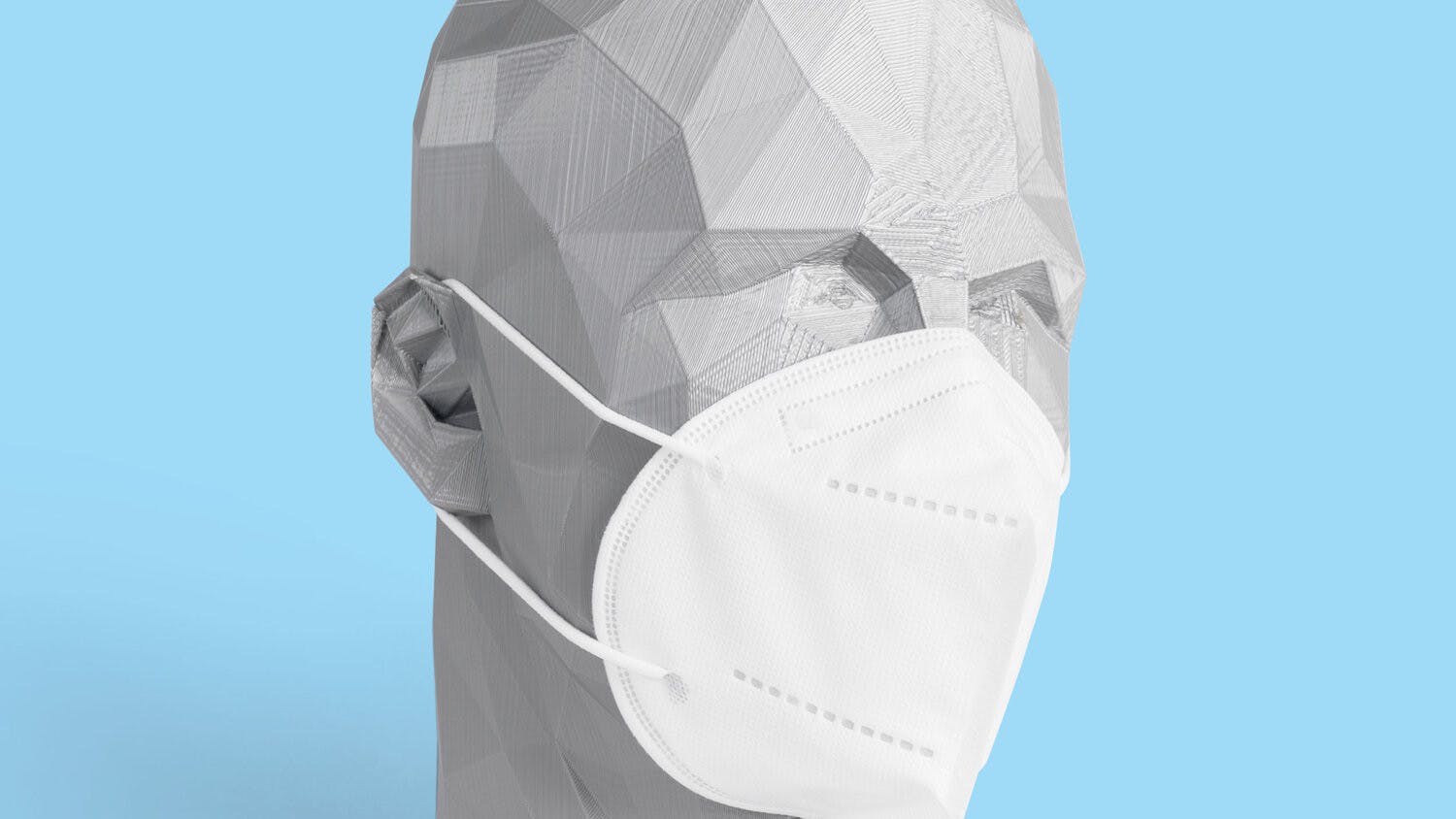Every day in the United States more than 115 people die after an overdose on opioids, according to the National Institute on Drug Abuse. The national epidemic accrues an annual bill of seventy-eight billion dollars, which accumulates through prescription opioid misuse, healthcare costs, addiction treatment, among other factors according to the institute’s website.
[caption id="attachment_25137" align="aligncenter" width="838"] Amanda Courtney/Staff Photographer[/caption]
Amid this present crisis, the United States Department of Health and Human Services, Substance Abuse and Mental Health Services Administration awarded Seton Hall University’s School of Health and Medical Sciences, College of Nursing and the Hackensack Meridian School of Medicine with an interprofessional grant intended to provide greater patient access to treatment for opioid use disorder.
The grant approves a $404,905 commitment for over three years according to an article from the Seton Hall website. Additionally, the article stated that the grant will provide “the three schools [with] interprofessional didactic instruction and clinical supervision related to opioid use disorder and medication-assisted treatment plans.”
Founding Dean of the School of Medicine, Dr. Bonita Stanton, said the three schools submitted an application in response to a “Request for Proposals” from the federal agency. An expert panel reviewed the submitted grants and the panel chose which submissions met the requirements for funding. Stanton expressed her excitement regarding the grant and its prospective positive effects on the three schools.
Students from Seton Hall’s Nutley campus, where all three colleges are located, conveyed their enthusiasm for the future opioid treatment programs.
Junior nursing major, Lisa Pastilha communicated her belief that this grant will assist in combating and treating patients with addiction.
“There isn’t one specific way to treat a thing like this so implementing a training program for so many students will be super beneficial,” Pastilha wrote in an email. “This grant is also meant to aid in teaching students how to work in an interprofessional environment, which is vital for the field we aspire to go into.”
Another junior nursing major, Ryan Ailara expressed the importance of including a timely program into the curriculum. As a future nurse, Ailara said although he cannot prescribe medications, his position would involve administering these prescriptions.
“Personally, I wouldn’t be comfortable giving a medication if I didn’t know what it was,” Ailara wrote in an email. “Opioids are very serious drugs classified as narcotics. Opioids also have what is called black box warnings. Whenever a drug has a black box warning, it means that the medication has very serious side effects.”
Ailara explained opioids may cause respiratory depression, which may lead to respiratory arrest, even death.
“I personally think that [the grant] has the potential to positively impact, not just nursing students, but all of the medical students at the IHS campus,” Ailara said.
Senior biology major, Jerin Mathew, shared in an email his concern for the American opioid crisis. He said a thorough education for trained professionals can help eradicate this problem and alleviate the suffering of patients.
“Opioid education will allow me to tackle this epidemic and prevent it from continuing to other patients,” Mathew said. “I’ll have more control of my patients drug intake and their overall reaction. A grant like this can allow me to better comprehend addiction and apply that to all circumstances of medical treatment.”
Stanton emphasized the collaboration among the three schools and Seton Hall’s interprofessional approach to opioid addiction. Furthermore, the collaboration will optimize health outcomes for all New Jersey residents claimed Stanton. Also, she mentioned that this is the first collaborative grant submitted by the three schools.
“The opioid epidemic currently raging across the nation is impacting persons of all races, genders, and socioeconomic status and involving urban and rural populations in virtually all states in the USA,” Stanton said. “Only through creative, inter-professional collaborations involving health, public health, research and policy personnel can we hope to overcome this epidemic. This grant award represents such a collaboration.”
Thomas Schwartz can be reached at thomas.schwartz@student.shu.edu.
Amanda Courtney/Staff Photographer[/caption]
Amid this present crisis, the United States Department of Health and Human Services, Substance Abuse and Mental Health Services Administration awarded Seton Hall University’s School of Health and Medical Sciences, College of Nursing and the Hackensack Meridian School of Medicine with an interprofessional grant intended to provide greater patient access to treatment for opioid use disorder.
The grant approves a $404,905 commitment for over three years according to an article from the Seton Hall website. Additionally, the article stated that the grant will provide “the three schools [with] interprofessional didactic instruction and clinical supervision related to opioid use disorder and medication-assisted treatment plans.”
Founding Dean of the School of Medicine, Dr. Bonita Stanton, said the three schools submitted an application in response to a “Request for Proposals” from the federal agency. An expert panel reviewed the submitted grants and the panel chose which submissions met the requirements for funding. Stanton expressed her excitement regarding the grant and its prospective positive effects on the three schools.
Students from Seton Hall’s Nutley campus, where all three colleges are located, conveyed their enthusiasm for the future opioid treatment programs.
Junior nursing major, Lisa Pastilha communicated her belief that this grant will assist in combating and treating patients with addiction.
“There isn’t one specific way to treat a thing like this so implementing a training program for so many students will be super beneficial,” Pastilha wrote in an email. “This grant is also meant to aid in teaching students how to work in an interprofessional environment, which is vital for the field we aspire to go into.”
Another junior nursing major, Ryan Ailara expressed the importance of including a timely program into the curriculum. As a future nurse, Ailara said although he cannot prescribe medications, his position would involve administering these prescriptions.
“Personally, I wouldn’t be comfortable giving a medication if I didn’t know what it was,” Ailara wrote in an email. “Opioids are very serious drugs classified as narcotics. Opioids also have what is called black box warnings. Whenever a drug has a black box warning, it means that the medication has very serious side effects.”
Ailara explained opioids may cause respiratory depression, which may lead to respiratory arrest, even death.
“I personally think that [the grant] has the potential to positively impact, not just nursing students, but all of the medical students at the IHS campus,” Ailara said.
Senior biology major, Jerin Mathew, shared in an email his concern for the American opioid crisis. He said a thorough education for trained professionals can help eradicate this problem and alleviate the suffering of patients.
“Opioid education will allow me to tackle this epidemic and prevent it from continuing to other patients,” Mathew said. “I’ll have more control of my patients drug intake and their overall reaction. A grant like this can allow me to better comprehend addiction and apply that to all circumstances of medical treatment.”
Stanton emphasized the collaboration among the three schools and Seton Hall’s interprofessional approach to opioid addiction. Furthermore, the collaboration will optimize health outcomes for all New Jersey residents claimed Stanton. Also, she mentioned that this is the first collaborative grant submitted by the three schools.
“The opioid epidemic currently raging across the nation is impacting persons of all races, genders, and socioeconomic status and involving urban and rural populations in virtually all states in the USA,” Stanton said. “Only through creative, inter-professional collaborations involving health, public health, research and policy personnel can we hope to overcome this epidemic. This grant award represents such a collaboration.”
Thomas Schwartz can be reached at thomas.schwartz@student.shu.edu.

Interprofessional Health Sciences campus in Nutley, NJ | Photo by Amanda Courtney




